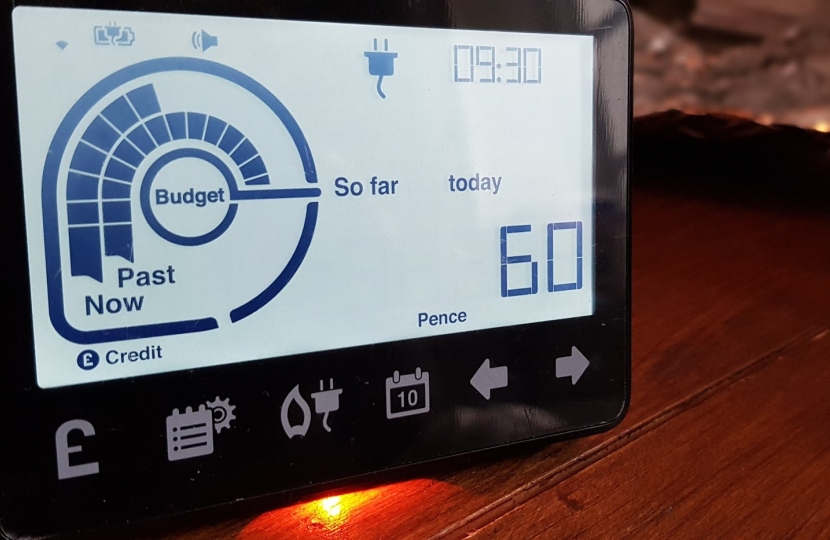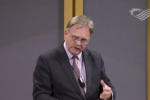
Chair of the Assembly Cross Party Group on Fuel Poverty and Energy Efficiency, Mark Isherwood AM, has called on the Welsh Government to ensure its new Fuel Poverty Strategy is focused on more than just energy efficiency.
Mr Isherwood made the plea when responding to yesterday’s Statement by the Minister for Environment by the Minister for Environment, Energy and Rural Affairs on ‘The Warm Homes Programme’.
He also asked the Minister to respond to calls for a Cold Weather Plan in Wales, questioned her about crisis funding to protect vulnerable households by providing emergency heating when their health is at risk, and emphasized the need for investment to improve the energy efficiency of existing housing stock in Wales.
He also spoke about Flintshire’s Affordable Warmth Scheme, quoting from correspondence he had received last year which said this ‘should be a flagship project to be emulated across Wales and the UK as an affordable way to provide real, practical and effective help to those most in need, but looks now most likely to be abandoned’.
Speaking in the Chamber, he said:
“The National Energy Action (NEA) Fuel Poverty Monitor 2017-18 referred to the Welsh Government's 2010 target to eradicate fuel poverty by December 2018, and said there had 'yet to be clear tangible steps towards setting a new fuel poverty commitment that can drive strategic action on fuel poverty reduction locally and nationally' and that there was 'consensus that a new fuel poverty strategy and action plan, which should include ambitious targets to improve homes to a minimum energy efficiency standard, should be developed in collaboration with stakeholders'.
“But in your Statement, you confirmed your intention to publish a new plan for tackling fuel poverty at next year's (NEA Wales) Conference, presumably another 12 months away, and that you're keen to work with the sector. How do you propose to work with the sector prior to the consultation you also referred to, to ensure that that really is developed in collaboration with stakeholders, because, as you know, there are many different ways that can be achieved, some more effective than others, in order to drive a national strategic plan with ambitious targets?
“Clearly, that can include things like better insulation, smarter lighting and appliances, smarter heating systems, all of which can save householders money. But also, as NEA Cymru said a couple of months ago, ‘whilst we know that energy inefficiency is a contributing factor to fuel poverty, this alone will not solve the problem. We also need a new strategy outlining a much more joined-up approach by Welsh Government, local authorities, housing associations, advice and health services, as well as other public and voluntary organizations in society’.
“How will you ensure that this plan or strategy that goes forward isn't simply focused on energy efficiency, although that's important, but on that broader social justice agenda?”
Calling on the Minister to respond to calls for a Cold Weather Plan in Wales, he said:
“Following the Welsh Government's 2010 strategy, excess winter deaths in Wales in 2011-12 were 1,250. However ONS data released last November showed that the number of excess winter deaths in Wales had reached 3,400 in 2017-18, with increases in all English regions and Wales, but Wales having the highest regional index.
“Last autumn, you told the Cross-Party Group on Fuel Poverty and Energy Efficiency that you'd be developing a Cold Weather Plan in conjunction with Public Health Wales. And this is reflecting the call in the NEA Fuel Poverty Monitor for Welsh Government to develop a Cold Weather Plan, similar to the plan in England produced by Public Health England. It also called for the Devolved Nations to adopt the NICE (National Institute for Health and Care Excellence) guideline and corresponding quality standard on cold-related ill health and excess winter deaths. For many years now, they've been calling for the adoption of the NICE guideline, not just the NEA, but the broader Fuel Poverty Coalition in Wales.”
